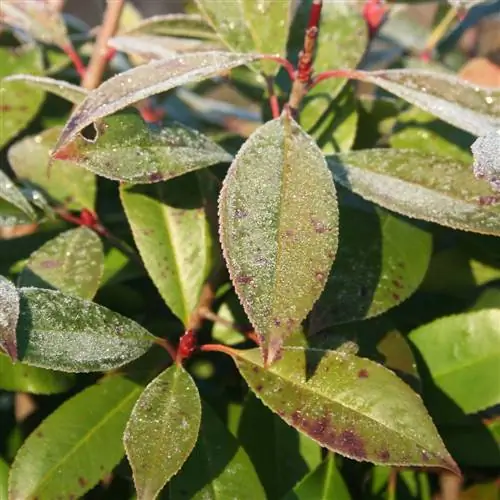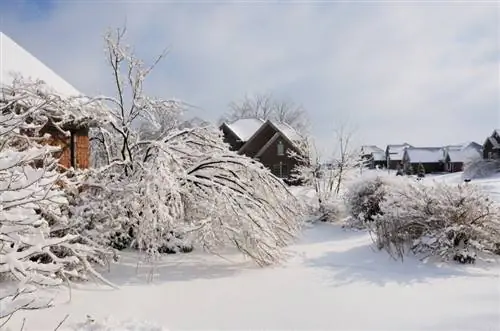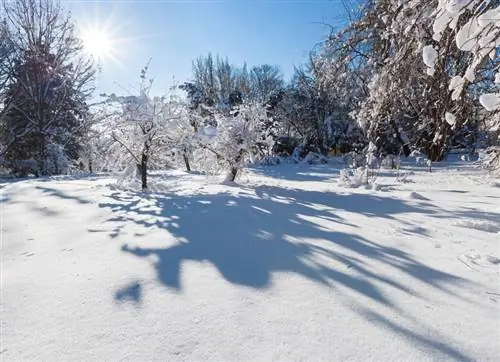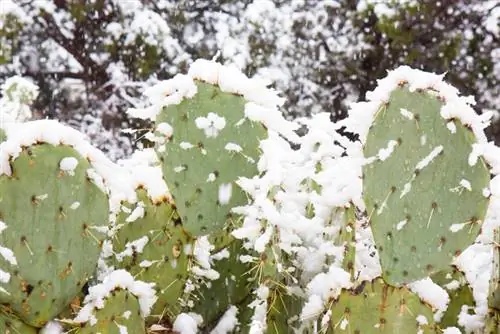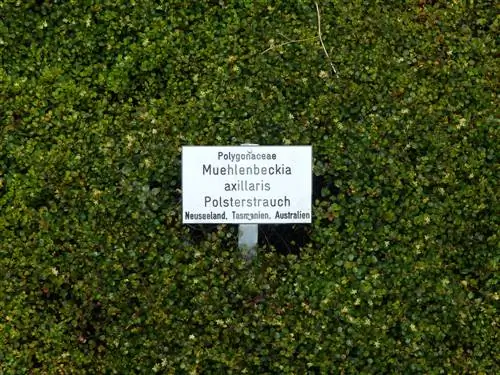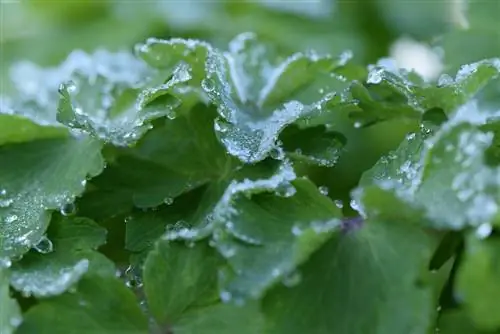- Author admin leonars@hobbygardeners.com.
- Public 2023-12-16 16:46.
- Last modified 2025-01-23 11:21.
Loquats are sold in stores as hardy. But the cold season can endanger the evergreen shrubs. In order not to disrupt the biological processes, the right winter protection is necessary.
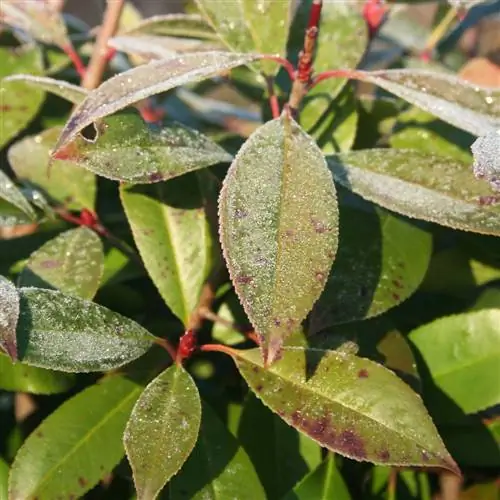
Are loquats hardy?
Loquats are partially hardy and can tolerate temperatures down to -20 degrees Celsius as long as the ground does not freeze. Protect the plant in winter with garden fleece, brushwood or pine branches and make sure to water it sufficiently before the cold season.
The frost tolerance of evergreen shrubs
As evergreen plants, loquats retain their leaves throughout the winter. The old leaves are replaced in spring. The bushes are sprouting again. The loquats originally come from the warmer areas of Asia. Their distribution area extends from the Himalayas through China to Thailand and India. Here, many Photinia species grow in regions with temperatures below freezing. Although commercially available varieties are often considered hardy, particularly long periods of cold can damage the plants.
Water cycle in winter
The plants are at risk from ground frosts that reach deep into the earth. As long as there is a thick layer of snow on the ground, there is no danger for most varieties at temperatures down to -20 degrees Celsius. The snow acts as a layer of insulation and prevents the ground from freezing. The roots of the loquat can absorb water from the ground, which its evergreen leaves need in winter.
Unlike deciduous shrubs, the water cycle in evergreen plants does not stop in winter. Water evaporates through the leaves. To avoid a deficit, the roots must provide supplies. This only works in ice-free ground. As soon as the roots are in a frozen substrate, water absorption stops. Drought stress occurs, which manifests itself in the leaves drying out and dying. If the ground freezes for a long time, the buds also dry out, so that new leaf shoots and flowers are at risk.
Protection from the cold
Winter protection provides a remedy. Older plants that have developed a dense root system cope better with the icy winter months than young plants. If the freezing temperatures persist for several weeks, you should protect the plant.
Winter protection for outdoor shrubs:
- Garden fleece as evaporation protection for the leaves
- Twigs or fir branches insulate the ground
- Water before winter replenishes reserves
Young plants should initially be cultivated in pots so that they can overwinter in a mild place without frost. Protect the leaves from excessive evaporation with a transparent fleece. Bubble wrap is ideal for wrapping the pot.

